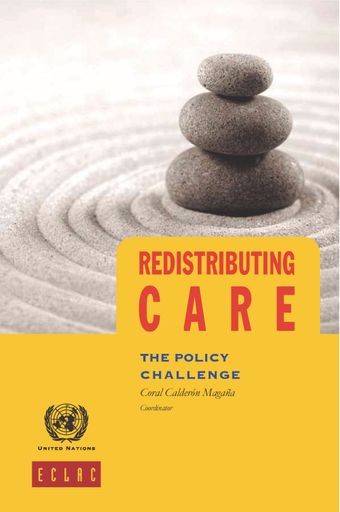- Home
- Books
- Redistributing care
- Chapter
Social protection and unpaid work: Redistribution of caregiving tasks and responsibilities - A case study of Ecuador

- Author: Alison Vásconez Rodríguez
- Main Title: Redistributing care , pp 339-384
- Publication Date: December 2013
- DOI: https://doi.org/10.18356/38f15ddd-en
- Language: English
Recent shifts in the emphasis of Ecuador’s welfare system have refocussed attention on the state’s role as provider and regulator of basic social services, the recognition of work as a key factor in welfare and growth, and the need to gear social and economic policies towards reducing inequality. At the same time, recent global crisis events have shown not only that economic systems are too weak to ensure sustainable employment and development but also that families use a wide variety of strategies to survive crises and actually shore up these systems. Many of their survival strategies have involved domestic and care work, which has also stepped in to cover social services in the absence of the State. Historically women have been in charge of covering these services, mostly at the expense of their own opportunities and well-being, with adverse consequences for the economy and society’s welfare.
© United Nations
ISBN (PDF):
9789210560177
Book DOI:
https://doi.org/10.18356/1884a832-en
Related Subject(s):
Economic and Social Development
Sustainable Development Goals:
-
From This Site
/content/books/9789210560177s005-c004dcterms_title,dcterms_subject,pub_keyword-contentType:Journal -contentType:Contributor -contentType:Concept -contentType:Institution105
/content/books/9789210560177s005-c004
dcterms_title,dcterms_subject,pub_keyword
-contentType:Journal -contentType:Contributor -contentType:Concept -contentType:Institution
10
5

